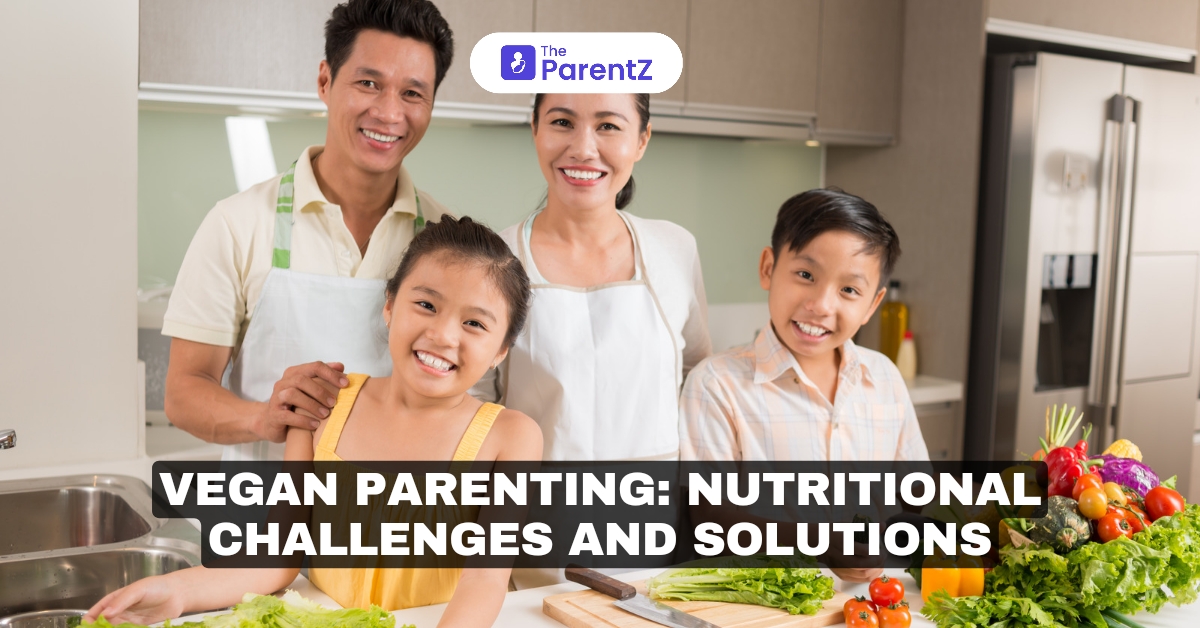As veganism gains popularity for ethical, environmental, and health reasons, many parents are choosing to raise their children on a plant-based diet. While a well-planned vegan diet can meet children's nutritional needs, it also presents unique challenges that require careful consideration.
Understanding Vegan Nutrition for Children
A vegan diet excludes all animal products—meat, dairy, eggs—and focuses on plant-based foods such as fruits, vegetables, whole grains, legumes, nuts, and seeds. This diet can provide essential nutrients when properly planned but requires attention to specific nutrients that are commonly found in animal products.
Key Nutritional Considerations
- Protein: Essential for growth and development; sources include lentils, beans, chickpeas, tofu, tempeh, quinoa, nuts, and seeds
- Calcium: Important for bone health; plant-based sources include fortified plant milks (almond, soy), leafy greens (kale), tofu made with calcium sulfate, and almonds.
- Iron: Crucial for cognitive development; non-heme iron sources include lentils, beans, fortified cereals, spinach, pumpkin seeds, and quinoa. Pairing these foods with vitamin C-rich foods (like oranges or bell peppers) enhances absorption.
- Vitamin B12: Vital for nerve function; since it's primarily found in animal products, vegans should consume fortified foods or take supplements.
- Omega-3 Fatty Acids: Important for brain development; sources include flaxseeds, chia seeds, walnuts, and algae-based supplements.
- Vitamin D: Supports bone health; consider fortified foods or supplements if sunlight exposure is limited.
- Zinc: Necessary for immune function; sources include beans, lentils, chickpeas, nuts, seeds, whole grains, and fortified cereals.
- Iodine: Important for thyroid function; seaweed is a good source but should be consumed in moderation due to varying iodine levels.
Raising Compassionate Kids
Vegan parenting extends beyond nutrition; it encompasses instilling values of compassion towards animals and the environment. Parents can teach children about:
- The ethical implications of dietary choices.
- The importance of empathy towards all living beings through age-appropriate discussions about animal welfare.
- Environmental stewardship by discussing the impact of food choices on climate change and sustainability.
Navigating Social Situations
Vegan children may face challenges in social settings such as school lunches or birthday parties:
- Communicate with teachers or caregivers about dietary needs.
- Prepare vegan snacks or meals that are easy to share.
- Encourage open discussions about dietary choices with peers to foster understanding.
Debunking Myths
Common misconceptions about vegan diets include concerns over nutrient deficiencies or inadequate growth:
- Research shows that well-planned vegan diets can support healthy growth in children.
- Parents should consult with healthcare providers or nutritionists specializing in vegan nutrition to ensure balanced diets.
Vegan Recipes for Kids
Incorporating fun and nutritious recipes can make vegan eating enjoyable:
- Chickpea Salad Sandwiches: Mashed chickpeas mixed with vegan mayo and diced veggies served on whole grain bread.
- Vegan Tacos: Lentils or black beans topped with avocado and salsa wrapped in corn tortillas.
- Smoothie Bowls: Blended fruits topped with granola and seeds provide a nutrient-dense breakfast option.
- Veggie Stir-Fry: A colorful mix of seasonal vegetables sautéed with tofu served over brown rice or quinoa.
In conclusion, raising vegan children is feasible with thoughtful planning around nutrition while fostering compassion towards animals and the environment.





Be the first one to comment on this story.